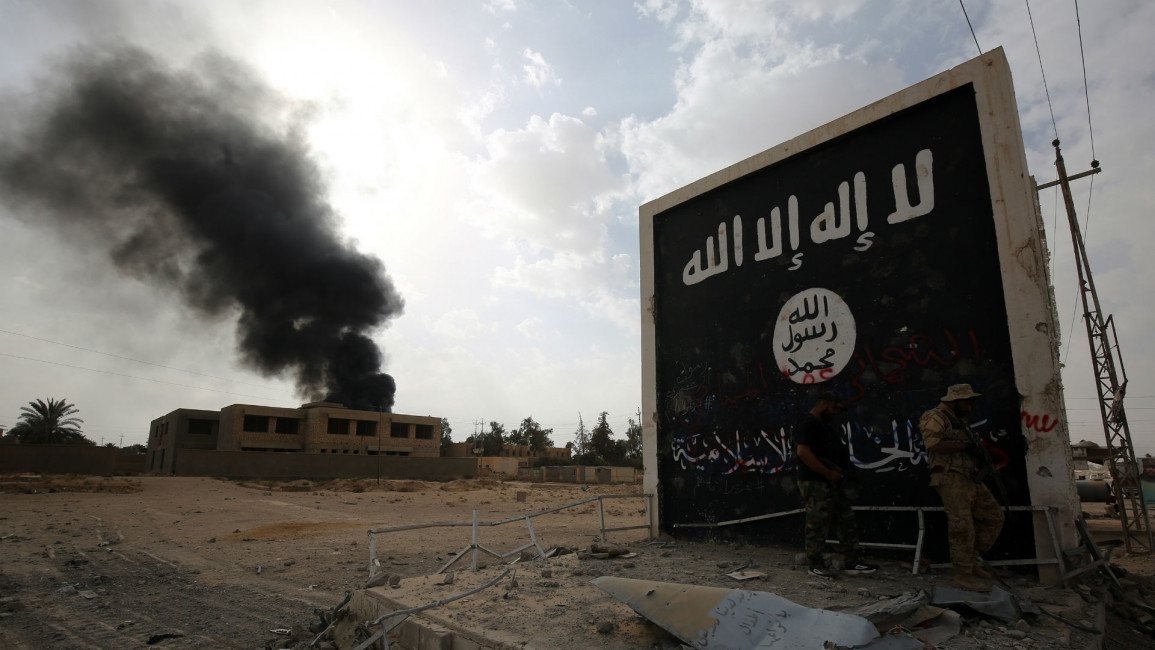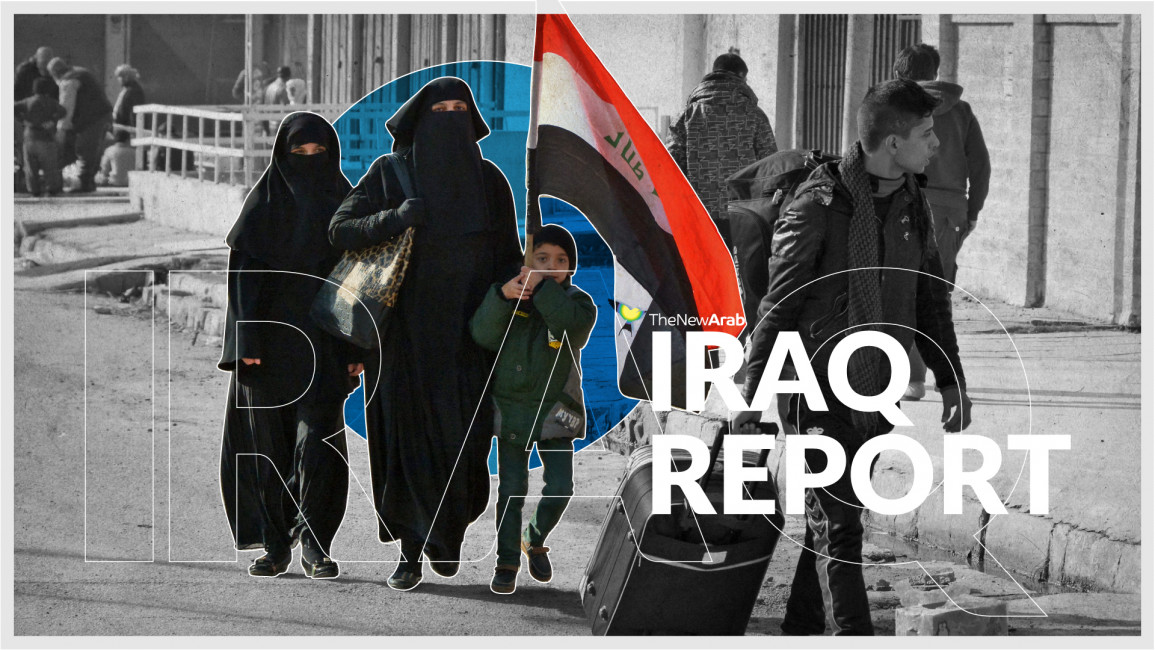
The Iraq Report: Sectarian tensions flare as IS resumes attacks in Diyala

Despite years having passed since the Iraqi government declared victory over the Islamic State (IS) group, the militants have continued to be able to regroup, reform, and launch attacks against Iraqi security forces and civilians alike.
In what appears to be an attempt to reignite sectarian tensions, IS has attacked a number of Iraqi military and security positions, as well as targeting Shia civilians in a village in Iraq’s eastern Diyala governorate, triggering extrajudicial and retaliatory killings of Sunni civilians by Shia militias aligned with the government.
While Baghdad struggles to contain this latest sectarian violence and to protect civilian lives, it has expanded its oil sales and inked new energy deals with neighbouring Saudi Arabia to pump some new life into its ailing economy and infrastructure.
However, if Iraq’s domestic security is allowed to spiral out of control again, Iraqi society will be torn apart, and energy will be the least of Baghdad’s concerns if it fails to contain the violence.
"The Islamic State group has claimed responsibility for attacks in eastern and northern Iraq over the past week, triggering retaliatory sectarian violence against Sunni villagers"
Islamic State regroups, Shia militias retaliate against civilians
The Islamic State group has claimed responsibility for attacks in eastern and northern Iraq over the past week, triggering retaliatory sectarian violence against Sunni villagers and undermining the authorities’ narrative that IS has been largely defeated.
IS took responsibility for an attack on Saturday that killed two Kurdish Peshmerga fighters in Altun Kupri in the restive Kirkuk governorate, Iraqi Kurdish outlet Rudaw reported.
Peshmerga officials blamed the attack on the security divide and a lack of coordination between Kurdish forces commanded from Erbil and the federal forces commanded by Baghdad. The gap in security was exploited by IS which allowed them to execute their attacks.
IS also launched a larger scale attack on the village of al-Rashad in Iraq’s eastern Diyala governorate on Tuesday last week, killing 11 and wounding 13.
Al-Rashad is predominantly a Shia village inhabited by the Bani Tamim tribe.
The militants first abducted two villagers before killing them and calling their relatives telling them to collect their bodies. When the victims’ relatives turned up, they were ambushed leading to many more casualties.
The following day, Bani Tamim tribesmen and local Badr Organisation militants operating under the authority of the Popular Mobilisation Forces (PMF) attacked the nearby Sunni village of Nahr al-Imam, burning and bulldozing farms and houses.
The Shia militant attack on Nahr al-Imam killed eight Sunni civilians, according to the Turkish state-owned Anadolu Agency.
“This shows how sectarian the authorities are. Why kill us for the crimes of terrorists? Every Sunni is a terrorist to them,” a Sunni activist living in nearby Muqdadiyah told The New Arab on condition of anonymity.
The PMF is an official branch of the Iraqi armed forces and gathers dozens of largely Shia and pro-Iran militias under its banner.
|
|
“Retaliatory attacks against civilians can never be justified,” Ahmed al-Mahmud of the London-based Iraqi Foreign Relations Bureau said. “The Nahr al-Imam incident demonstrates how collective punishment is meted out against Sunnis for any crimes perpetrated by IS.”
The uptick in IS violence in the region has also been linked to the deportations and mass evacuations of Sunni Arab villages during the war against IS that ended in 2017.
“They [the government] empowered [IS]. When you refuse to allow people back to their homes and people get desperate, they will turn to whoever provides them with help or a way to get revenge,” the Muqdadiyah activist told The New Arab.
This analysis finds further support in local media reports that suggest that forcibly displacing and failing to repatriate internally displaced Sunni Arabs is a primary driver of radicalisation, allowing IS to easily move through these disenfranchised communities because the federal authorities are nowhere to be found.
Prime Minister Mustafa al-Kadhimi was criticised for focusing on IS for an international audience rather than condemning and taking action against both the Sunni and the Shia jihadist groups.
"Retaliatory attacks against civilians can never be justified. The Nahr al-Imam incident demonstrates how collective punishment is meted out against Sunnis for any crimes perpetrated by IS"
In the immediate aftermath of the attacks, Kadhimi tweeted that the “Miqdadiya crime will not go unpunished. Their [IS’] heinous crimes strengthen our determination to uproot them from Mesopotamia.” However, he neglected to comment about the attacks on Nahr al-Imam.
Instead, the federal government deployed further security units to lockdown Muqdadiyah and the surrounding area to contain the violence. However, this show of state force was undermined by the Badr Organisation’s leader, Hadi al-Amiri, inspecting the site of the IS attack.
Although Baghdad had recently announced the arrest and assassination of two senior IS militants who allegedly were close to former leader Abu Bakr al-Baghdadi in recent weeks, there has been no sign that the militant group is ready to surrender.
A UN report published early this year estimated that around 10,000 IS fighters remained active across Iraq and Syria.
In early September, 13 Iraqi federal police officers were killed in an IS attack on their checkpoint, again near the northern city of Kirkuk.
In July, the group further claimed responsibility for an attack on a market in the Shia district of Baghdad, Sadr City, in which around 30 people died.
This lends credence to the analysis that IS has reverted to the tactics utilised by its earlier iterations as Al-Qaeda in Iraq and decentralised its operations. While IS is most famous for attempting to capture, hold, and rule territory, it cannot do so in the current environment as it would mean it could be targeted and its fighters and commanders killed much more easily.
This is why, despite the arrest of senior militants, the organisation is able to continue fighting and to continue causing damage. The actions of Shia militias in brutalising Sunni civilians in retaliation will only empower IS and play into the group’s hands.
Iraq's energy strategy envisages greater regional cooperation
While Iraq’s domestic security continues to spiral, its energy-dependent economy received a slight boost in the past month as proceeds from oil sales increased in October compared to the previous month.
Iraqi oil exports rose from 3.08 million barrels per day (bpd) to 3.12 million bpd. These were primarily exported through the country’s southern Basra oil terminals, while a minority was exported from Kirkuk to Turkey’s Ceylan seaport to be delivered to international markets.
This slight increase in output was also met by an increase in prices, as crude oil rose to $79.38 per barrel from $72.6, injecting Iraqi coffers with much-needed revenues of $7.68 billion as the coronavirus pandemic and political instability continues to batter the fragile economy.
The increase in revenues also comes as the United States called on OPEC+ members to agree to an increase in supply on Saturday which was supported by Iraq’s state-owned oil marketing company, SOMO.
Although increasing supply will cool rising prices, Iraq’s increased output would mean that it would still generate higher revenues as it does not output as much as other regional heavyweights such as Saudi Arabia, who have an interest in keeping prices high.
Although Baghdad and Riyadh do not see eye to eye on OPEC+ oil supply quotas increasing, they have made significant headway in signing energy deals worth tens of billions of dollars, according to Reuters.
"A UN report published early this year estimated that around 10,000 IS fighters remained active across Iraq and Syria"
Iraq is discussing a partnership with energy giant Saudi Aramco to explore and develop natural gas fields in Iraq's western desert. The Iraqi government is also in talks with Saudi Arabia's Acwa Power to build water desalination plants and solar energy stations in Iraq.
These reports coincide with Iraq’s earlier announcements of inking new energy deals with France’s Total, the Chinese state-backed Power China, and even Emirati-owned solar power firms.
By deepening economic and energy ties with not only regional neighbours but also international partners, Baghdad appears to be gearing itself to ease its addiction to Iranian energy exports.
Tehran has been Baghdad’s largest energy supplier, a source that could be disconnected if Washington ever decides to impose sanctions on Iraq for doing business with Iran.
While that is highly unlikely due to numerous political factors that keep Iraq somewhat insulated from the United States’ more powerful economic tools against Iran, the fact that it is such a strategic threat to the Iraqi state will encourage Baghdad to spread its eggs amongst multiple baskets, hedging its energy security against any seismic political shifts.
The Iraq Report is a regular feature at The New Arab.
Click here to see the full archive.




